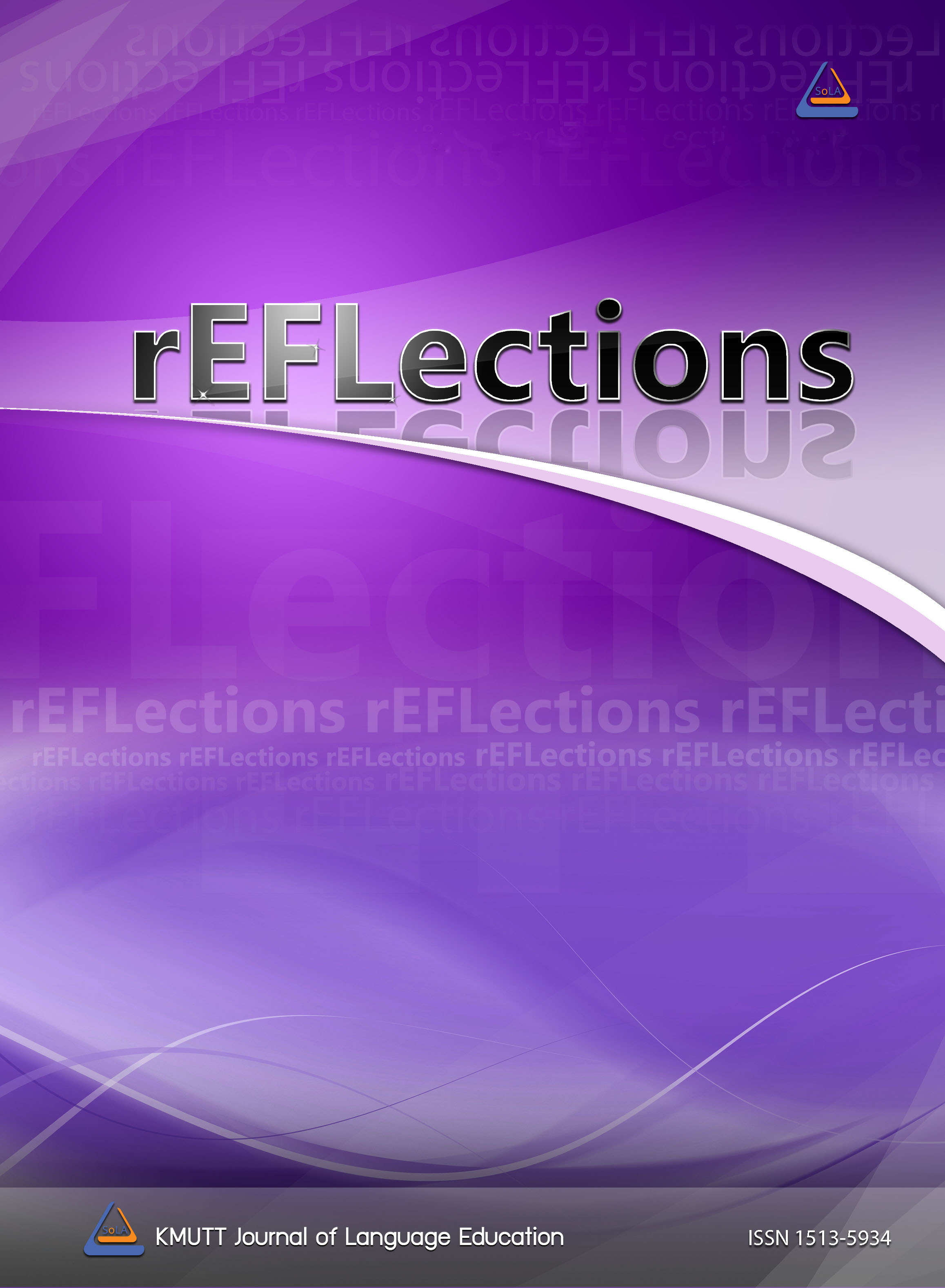Challenges of Linguistic Human Rights in Relation to Language Education
Main Article Content
Abstract
Linguistic human rights (LHRs) envelop many questions and ambiguous areas of language pedagogy and sociolinguistics. Difficulties arise as one must understand, due to the demands of linguistic rights, what treatment is owed to whom while balancing the sensitivities of a culture and the linguistic demands of individuals. Further, linguistic concerns themselves are highly complex, as one language may be endangered while another is privileged—complicating LHRs as one navigates the many interests and differences found in language use and acquisition in any given culture or community. Through secondary research, this paper will work toward identifying the difficulties they face, in part by looking at historical developments of LHRs and language education in the West. This secondary research primarily focused on peer-review publications within the last ten years, with key terms including “linguistic human rights,” “language rights,” “culture and language,” and “bilingualism and court decisions.” This approach to linguistic human rights will help reveal the differences in value individuals hold toward language education depending on various factors (e.g., immigration, political conflict, cultural identity) and the interplay between linguistic rights and language education. Additionally, it is through this approach that one sees the variety of responses and proposed solutions to the issues surrounding LHRs, but disagreement on how best to address the issue of LHRs remains. Ultimately, both researchers and instructors would benefit from being aware of linguistic human rights and historical interactions between cultures and language rights, as both shape the education—and therefore the lives—of students.
Article Details

This work is licensed under a Creative Commons Attribution-NonCommercial-NoDerivatives 4.0 International License.
References
Baugh, J. (2020). Sociolinguistic evaluations of inequality. International Journal of the Sociology of Language, 2020(263), 59–66. https://doi.org/10.1515/ijsl-2020-2083
Bilingual Education TX. (2013, July 8). Ten who dared [Video]. YouTube. https://www.youtube.com/watch?v=n--sV1wZGe4
Callahan, R., DeMatthews, D., & Reyes, P. (2019). The impact of Brown on EL Students: Addressing linguistic and educational rights through school leadership practice and preparation. Journal of Research on Leadership Education, 14(4), 281–307. https://doi.org/10.1177/1942775119878464
Chong, S. W., & Plonsky, L. (2021). A primer on qualitative research synthesis in TESOL. TESOL Quarterly, 55(3), 1024–1034. https://doi.org/10.1002/tesq.3030
Doliwa-Klepacka, A. (2019). Linguistic rights in the education system in light of the framework convention for the protection of national minorities (By the example of Poland and Lithuania). Studies in Logic, Grammar and Rhetoric, 58(1), 59-76. https://doi.org/10.2478/slgr-2019-0017
Feinberg, J., & Narveson, J. (1970). The nature and value of rights. The Journal of Value Inquiry, 4(4), 243-260. https://doi.org/10.1007/bf00137935
Gorjanc, V., & Morel, A. (2012). Linguistic human rights and the role of interpreting: The Slovenian situation. Vertimo Studijos, 5(5), 101–112. https://doi.org/10.15388/vertstud.2012.5.10563
Ishida, A., Yonetani, M., & Kosaka, K. (2006). Determinants of linguistic human rights movements: An analysis of multiple causation of LHRs movements using a Boolean approach. Social Forces, 84(4), 1937-1955. https://doi.org/10.1353/sof.2006.0094
Lee-Hammond, L., & Jackson-Barrett, E. (2019). Indigenous children’s linguistic rights in the 21st century: Intentions and tensions in practice. International Journal of Early Childhood, 51(3), 301-318. https://doi.org/10.1007/s13158-019-00251-6
MacSwan, J. (2020). Translanguaging, language ontology, and civil rights. World Englishes, 39(2), 321-333. https://doi.org/10.1111/weng.12464
Makoni, S., & Pennycook, A. (2007). Disinventing and reconstituting languages. In S. Makoni & A. Pennycook (Eds.), Disinventing and reconstituting languages (pp. 1–41). Multilingual Matters.
Martin, L. (2008). “Speak German or sweep the schoolyard”: Linguistic human rights in Germany. Profession, 2008(1), 130–145.
Mazique, R. (2021). Deaf rights as human rights: Delimiting the human with literatures of “The hearing line”. Human Rights Quarterly, 43(4), 736-758. https://doi.org/10.1353/hrq.2021.0058
Miller, R. D., & Katsiyannis, A. (2013). Students with limited English proficiency. Intervention in School and Clinic, 50(2), 121-124. https://doi.org/10.1177/1053451213496161
Montoya, I. L. (2021). Review of the book Using ESL students’ first language to promote college success: Sneaking the mother tongue through the back door by A. Parmegiani. Latino Studies, 19(1), 140-142. https://doi.org/10.1057/s41276-021-00289-5
Murray, J. J. (2015). Linguistic human rights discourse in deaf community activism. Sign Language Studies, 15(4), 379–410.
Muzsnai, I. (1999). The recognition of sign language: A threat or the way to a solution? In M. Kontra, T. Várady, R. Phillipson & T. Skutnabb-Kangas (Eds.), Language: a right and a resource: Approaching linguistic human rights (pp. 279–296). Central European University Press.
Panda, M., & Mohanty, A. (2009). Language matters, so does culture: Beyond the rhetoric of culture in multilingual education. In T. Skutnabb-Kangas, R. Phillipson, A. K. Mohanty & M. Panda (Eds.), Social justice through multilingual education (pp. 301–319). ProQuest Ebook Central.
Paulston, C. B. (1997). Language policies and language rights. Annual Review of Anthropology, 26(1), 73-85. https://doi.org/10.1146/annurev.anthro.26.1.73
Phillipson, R. (1998). Globalizing English: Are linguistic human rights an alternative to linguistic imperialism? Language Sciences, 20(1), 101-112. https://doi.org/10.1016/s0388-0001(97)00015-6
Shue, H. (1996). Basic rights: Subsistence, affluence, and U.S. foreign policy (2nd ed.). Princeton University Press. (Original work published 1980)
Skutnabb-Kangas, T. (2018). Linguistic diversity, language rights and language ecology. Sustainable Multilingualism, 13(1), 14-58. https://doi.org/10.2478/sm-2018-0011
Stanton, D. C. (2005). On linguistic human rights and the United States “Foreign” Language Crisis. Profession, (2005), 64–79.
Szoszkiewicz, Ł. (2017). Linguistic human rights in education. Przegląd Prawniczy Uniwersytetu Im. Adama Mickiewicza, 7, 105-118. https://doi.org/10.14746/ppuam.2017.7.07
United Nations. (1948). Universal Declaration of Human Rights. https://www.un.org/en/about-us/universaldeclaration-of-human-rights
Zhang, C. (2021). Linguistic minorities with disabilities and the right to native language instruction. Chicago Journal of International Law, 22(1), 335-367.


